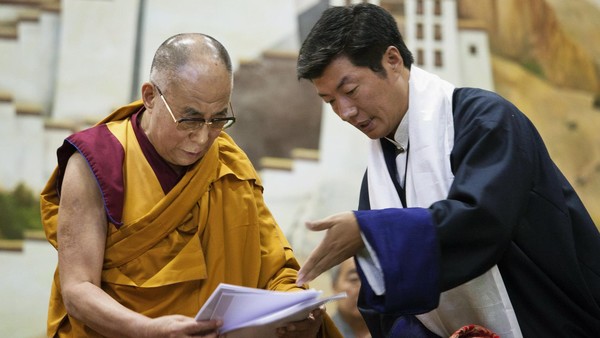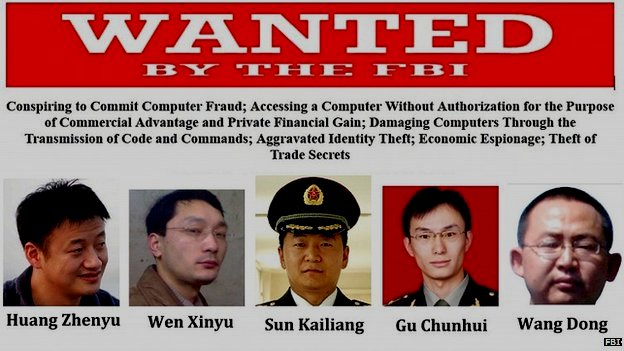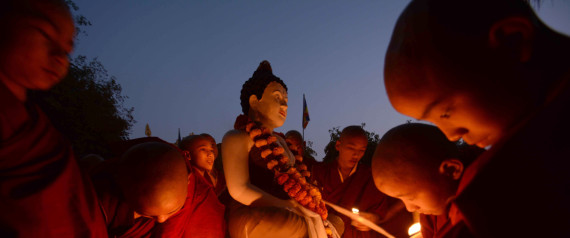Enemies of the State: Beijing Targets NGOs
Andrew Browne, The Wall Street Journal | May 26, 2015
Fear of foreign infiltration behind a draft law that turns civic groups into security risks
SHANGHAI—It takes a special kind of courage to run a foreign nonprofit in China these days.
And not just because of the challenge of dispensing humanitarian services across such a vast country, everything from HIV/AIDS awareness campaigns to environmental clean-ups and care for orphans. Regulations are so onerous it’s virtually impossible for many civic groups to operate legally. On top of that, there’s a pervasive suspicion among the authorities that overseas-funded groups are secretly plotting against the regime.
Still, thousands persist, often counting on sympathetic local police and officials to turn a blind eye to infractions.
That kind of indulgence may soon be ending. A Chinese draft law treats the entire sector of foreign nonprofits as potential enemies of the state, placing them under the management of the Ministry of Public Security.
To drive home the point, the law is being readied as part of a package of legislation that also includes a national-security law and an antiterrorism law—and it contains similar language, according to Western legal experts who have studied the texts.
Beijing’s message is clear, says the director of one children’s-education group: “We’re not welcome anymore.”
“It’s insulting,” she adds, asking not to be identified.
China isn’t alone in stepping up pressure on nonprofits. In Cambodia, nonprofits are alarmed by a proposed law that makes connections between NGO funding and money-laundering. Indian authorities have been scrutinizing the finances of the Ford Foundation and have frozen the bank accounts of Greenpeace’s Indian arm.
There’s a long history of suspicion about Westerners and their civic works in China: The missionaries who flooded in during the 19th century did so under the protection of gunboats and “unequal treaties” that pried open the country against its will. In the same way, Chinese authorities today cast nonprofits as agents of a new kind of imperialism seeking to undermine Communist ideology. Lurking at the back of their minds are memories of covert CIA activities in Tibet during the Cold War aimed at destabilizing the regime.
Critics say the new law reflects a gathering sense of siege within the administration of President Xi Jinping.
Increasingly, they say, views of America and the West within the leadership are darkening, driven by fears that what state media calls “hostile foreign forces” are infiltrating the country. During last year’s “Umbrella Revolution” in Hong Kong, a Chinese general accused foreigners of whipping up the student unrest, while the nationalist-leaning Global Times railed against “black hands” from abroad.
Foreign nonprofits are widely viewed as a bridgehead for subversion. Intensely suspicious of any networked activity it doesn’t directly control, the government is especially wary of the grants they scatter that have allowed the domestic NGO sector to flourish.
In a preamble, the draft law says its aim is to protect the “rights and interests” of foreign NGOs while “promoting exchange and cooperation.”
But it piles on new layers of bureaucracy. Nonprofits will have to pay tax and hire Chinese accountants to conduct regular audits. They’ll have to go through approved agencies to hire staff and recruit volunteers. To enforce compliance, police will have unchallenged rights to enter offices, seize documents and inspect bank accounts.
The upshot is that smaller operations may have to pack up and leave, say nonprofit workers. Already, individuals have been forced out. Among them was British national Tim Millar who was working to improve legal protections for the disabled. He had to go after police caught him on a visa technicality.
In a U.S.-China relationship marked by constant frictions, people-to-people exchanges have helped keep overall ties on an even keel. But what’s deeply troubling to Western legal experts is the law’s sweeping definition of NGOs—all groups operating outside the scope of government and commerce. This will bring under police watch not just traditional nonprofits but also the activities of foreign colleges and their alumni clubs, sports and artistic bodies and professional associations.
Theoretically, notes Carl Minzner, a professor at New York’s Fordham Law School, it could even complicate trips to China by American high-school marching bands. That’s because even the most innocuous NGO activity will require a Chinese sponsor. Since NGOs are being treated as potential security threats, that won’t be easy.
“This could wreak serious collateral damage on U.S.-China ties,” warns Mr. Minzner.
Some critics believe that the new law reflects a more general anti-Western bias within the leadership.
Fiercely cracking down on advocates of so-called Western values, including human-rights lawyers, academics and bloggers, Mr. Xi is reaching into China’s own Confucian culture, as well as its punitive legal traditions, for solutions to China’s social problems. Just last week he warned that religions must be free from foreign influence.
Taking their cue, authorities are tearing down crosses from the rooftops of Christian churches in Zhejiang province, where pastors and their congregations organize social welfare for the neediest.
Lester Ross, the senior partner at the Beijing offices of law firm WilmerHale calls the draft law “totally egregious,” although he’s hopeful that if authorities hear enough objections they might roll back some of the harsher provisions before it passes, possibly later this year.
Meanwhile, the director of the children’s group is digging in for a long struggle between police and nonprofits, one that could leave a deep mark on Chinese society. She’ll stay on, she says, “until they throw me in jail.”




